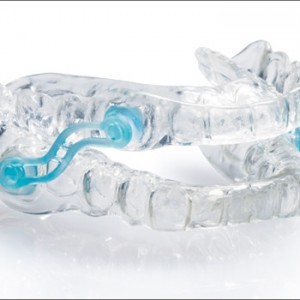SNORING AND SLEEP APNEA
People with sleep apnea often have daytime sleepiness or fatigue which can lead to inability to concentrate and can lead to errors in judgement and potentially more serious consequences such as falls and/ or car or work-related accidents. When left untreated, sleep apnea can contribute to heart disease, high blood pressure, diabetes, depression, stroke, heart failure, irregular heartbeats and heart attacks.
Common symptoms of sleep apnea include:
- Loud or frequent snoring
- Silent pauses in breathing
- Choking or gasping sounds
- Daytime sleepiness or fatigue
- Unrefreshing sleep
- Insomnia
- Morning headaches
- Nocturia (waking during the night to go to the bathroom)
- Difficulty concentrating
- Memory loss
- Decreased sexual desire
- Irritability
Risk Factors
The major risk factor for sleep apnea is excess body weight. You are much more likely to have sleep apnea if you are overweight or obese. However, sleep apnea can occur in slim people too. Common risk factors for sleep apnea include:
- Excess weight – Your risk for sleep apnea is higher if you are overweight with a body mass index (BMI) of 25 or more or obese with a BMI of 30 or higher.
- Large neck size – Your risk for sleep apnea is higher if you have a neck size of 17 inches or more for men, or 16 inches or more for women. A large neck has more soft tissue that can block your airway during sleep.
- Middle age – Sleep apnea can occur at any age. However, it is more common between young adulthood and middle age.
- Male gender – Sleep apnea is more common in men than in women. For women the risk of sleep apnea increases with menopause.
- Hypertension – High blood pressure is extremely common in people who have sleep apnea.
- Family history – Sleep apnea is a heritable condition. This means that you have a higher risk of sleep apnea if a family member also has it. Inherited traits that increase the risk for sleep apnea include obesity and physical features such as a recessed jaw. Other common family factors – such as physical activity and eating habits – also may play a role.
Sleep Apnea – Treatment
Dr. Mellas screens even her youngest patients for traits that can be causing sleep apnea or may lead to sleep apnea and snoring in adulthood. Narrow jaws and recessive chins can be corrected at a young age while a child is still growing. to give our young patients greater airway space. Since growth is complete on an adult, treatment is more postural for the jaws to help with giving them more airway space.
Sleep apnea is a serious sleep disorder that needs to be treated. A board certified sleep physician may recommend a sleep study for you. Your treatment plan may include any combination of these treatments:
Lifestyle Changes
There are a variety of lifestyle changes that you can make to help you reduce your snoring and improve your sleep apnea symptoms. Behavioral changes such as quitting smoking or not drinking alcohol may improve sleep apnea symptoms. Alcohol relaxes your throat muscles which can cause you to snore or for your airway to collapse. If you have allergies, taking a decongestant before you go to bed may help improve airflow through your nose. Some patients find congestion relief with Breathe Right Strips placed on the nose. Positional therapy is a behavioral strategy to treat positional sleep apnea as some people have sleep apnea primarily when sleeping on their back. Positioning yourself to sleep on your side may help in some cases. In some cases weight loss can help improve or eliminate your sleep apnea symptoms if you are overweight or obese. Overweight people often have thick necks with extra tissue in the throat that may block the airway. There is no guarantee that losing weight will eliminate your sleep apnea, though it may help.
ORAL APPLIANCE THERAPY
An oral appliance is a device that fits in your mouth over your teeth while you sleep. It may resemble a sports mouth guard or an orthodontic retainer. The device prevents the airway from collapsing by keeping your jaw forward while you are sleeping to create more airway space. Some patients prefer sleeping with an oral appliance to a CPAP machine. Dr. Mellas can fit you with an oral appliance after you are diagnosed with sleep apnea or a snoring habit. Oral appliance therapy is recommended for patients with mild to moderate apnea. More severe cases will also require the CPAP machine.
CPAP (Continuous Positive Airway Pressure)
CPAP is a machine that uses a steady stream of air to gently keep your airway open throughout the night so you are able to breathe. You sleep with a mask with a hose that is attached to a machine kept at the bedside. Many patients have trouble getting used to this treatment and opt for behavior modification and oral appliance therapy.
Surgery
Surgical therapies are not as effective in treating sleep apnea as CPAP and oral appliances. There are a variety of surgical options you can elect to have if CPAP or oral appliance therapy does not work for you. The most common options reduce or eliminate the extra tissue in your throat that collapses and blocks your airway during sleep. More complex procedures can adjust your bone structures including the jaw, nose and facial bones. Weight loss surgery may also be an option.

